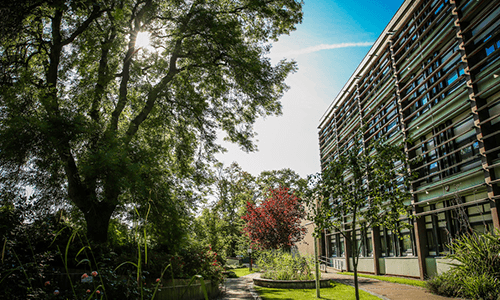
Regenerative medicine aims to treat human disease by producing replacement cells, tissues or organs. It involves a group of novel technologies based on the use of stem cells. This exciting area is currently at an early stage, but it is developing rapidly due to the recent ability to manipulate specialised adult stem cells to revert to a more flexible, embryonic–like stage (induced pluripotent stem cells) which can produce all cell types (Nobel Prize, 2012).

Since regenerative medicine has the potential to become an area of major practical importance in clinical medicine, but is currently at a very early stage, postgraduates with advanced knowledge in this topic will be well- placed at the forefront of a new and rapidly expanding area.

Graduates from this unique Masters course, which is the only one providing expertise in both skin sciences and regenerative medicine, will have a particular advantage as their proficiency will cover these two important fields with major significance for both research and industrial employment.


